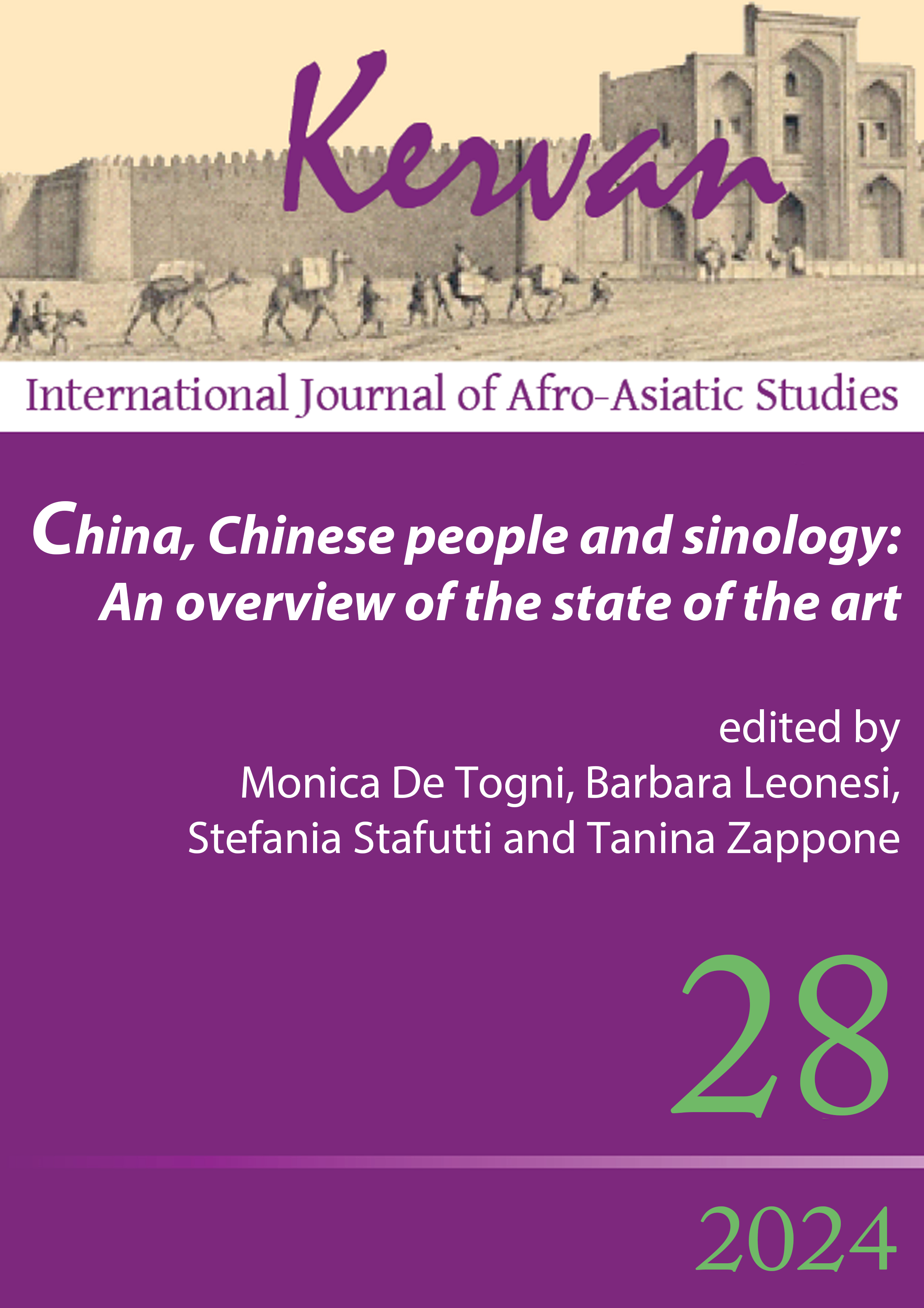A synthesis of educational chanted rules: The chapter Xuntong men 訓童門 in riyong leishu 日用類書
DOI:
https://doi.org/10.13135/1825-263X/11601Abstract
Among the many chapters on all human knowledge provided by the 1612 encyclopedia entitled Xin ban zengbu tianxia bian yong wenlin miao jin wanbao quanshu 新板增補天下便用文林妙錦萬寶全書 (The marvelous, precious, newly edited and supplemented “Complete Book of Myriad Treasures” of literati for the convenient use of all), there is also one on infant education. In the introduction of the chapter, the author stresses the importance of education, and how it can transform a person’s life. Therefore, what were the recommended teaching strategies for raising virtuous children? What was the common etiquette for a child to follow in seventeenth-century China? What analogy or difference does it have in comparison to previous pedagogical literature?
This paper, by means of the partial English translation of the encyclopedic chapter Xuntong men 訓童門 (section for educating children), tries to answer these questions by analyzing the educational precepts, their roots anchored in the Chinese pedagogical literature and the use of rhymes such as erge 兒歌, geyao 歌謠, as an effective teaching strategy to make the precepts simpler and catchy.
The selected case study represents a model example of printed text which belongs to the genre riyong leishu 日用類書 (a collection of texts for daily-use), encyclopedias that circulated widely in late Ming and early Qing China, and reflects what was then the most widespread and common knowledge in the pedagogical field recommended for self-study. The chapter which is focused on teaching children also represents the fusion of Confucian educational concepts and the practical nature characteristic of daily-use encyclopedias.
Downloads
Downloads
Published
Issue
Section
License
Gli autori che pubblicano su Kervan accettano le seguenti condizioni:
- Gli autori mantengono i diritti sulla loro opera e cedono alla rivista il diritto di prima pubblicazione dell'opera, contemporaneamente licenziata sotto una Licenza Creative Commons - Attribuzione che permette ad altri di condividere l'opera indicando la paternità intellettuale e la prima pubblicazione su questa rivista.
- Gli autori possono aderire ad altri accordi di licenza non esclusiva per la distribuzione della versione dell'opera pubblicata (es. depositarla in un archivio istituzionale o pubblicarla in una monografia), a patto di indicare che la prima pubblicazione è avvenuta su questa rivista.


 The articles that have appeared on Kervan since 2016 are rated as Class A in the system of National Scientific Qualification (ASN, disciplines 10/N1 and 10/N3).
The articles that have appeared on Kervan since 2016 are rated as Class A in the system of National Scientific Qualification (ASN, disciplines 10/N1 and 10/N3). The journal has been approved for inclusion in DOAJ. The DOAJ listing of the journal is available at
The journal has been approved for inclusion in DOAJ. The DOAJ listing of the journal is available at  The journal has been approved for inclusion in ERIH PLUS. The ERIH PLUS listing of the journal is available at
The journal has been approved for inclusion in ERIH PLUS. The ERIH PLUS listing of the journal is available at  Kervan was just accepted for indexing in SCOPUS. This important milestone ensures that articles published in Kervan are easily found when searching for library, archives and Information science and it enables Kervan authors to keep track of how often their article has been cited by others.
Kervan was just accepted for indexing in SCOPUS. This important milestone ensures that articles published in Kervan are easily found when searching for library, archives and Information science and it enables Kervan authors to keep track of how often their article has been cited by others.

